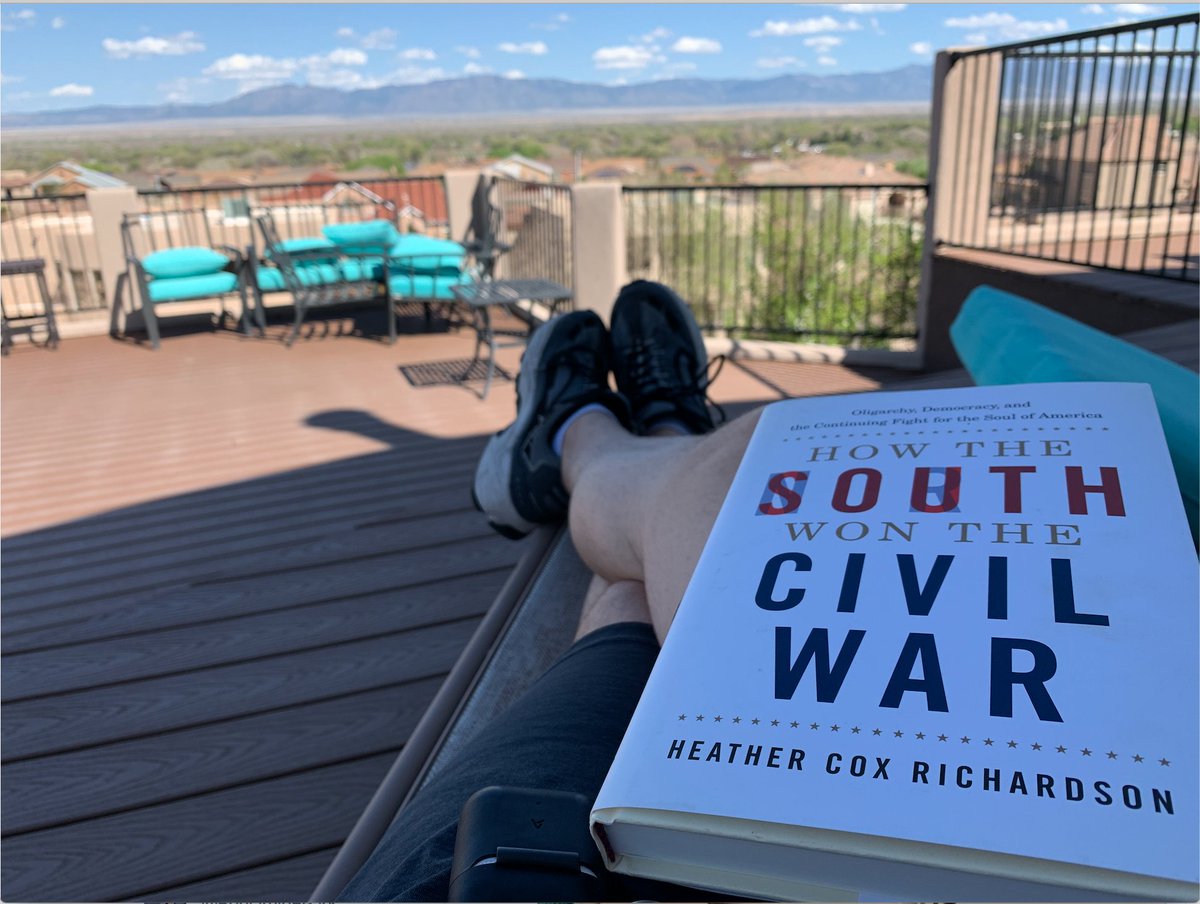For my first #review thread, I& #39;m going to highlight @HC_Richardson& #39;s new and sweeping volume, "How the South Won the Civil War: Oligarchy, Democracy, and the Continuing Fight for the Soul of America."
(Capitalized words are my different categories.)
(Capitalized words are my different categories.)
GENERAL ARGUMENT: since its founding, American political thought has struggled with a paradox--equality for all, but privilege for a few. The latter principle was increasingly triumphed by the South, who tried to create an oligarchic empire. /2
Yet even after Lincoln, the abolitionists, and the Union destroyed the Confederacy, the idea did not die. Rather, it moved West, as the new western territories were built on the same principles of extraction & racial hierarchies. The South& #39;s oligarchic vision lived on. /3
Then, in the twentieth century, and in response to the New Deal policies, these two regions united to form a new, powerful political front, the Movement Conservatives. Richardson traces this alliance all the way to Trump. /4
Because their central message--that a privileged few are best equipped for leadership--does not square with democratic rhetoric, they focus on the corollary warning: that expanding suffrage and democratic involvement (an "inclusive" democracy) threatens order & property. /5
SOMETHING NEW: perhaps the most striking contribution is not just HCR& #39;s connection of Old South to the New West, but her discovery of the "independent cowboy" as rhetorical cover for this populist oligarchic message, from Kit Carson to Ronald Reagan. /6
I was especially intrigued by how she traced the discursive lineage of mid-19th century Republicans like Barry Goldwater to mid-18th century Democrats like John C. Calhoun, demonstrating the tragic legacy of this form of ideology. /7
SOMETHING IMPRESSIVE: I was amazed at how HCR was able to span such a large space of time (200 years!) in such a short space of text (200 pages!). Each paragraph dripped of substantial historiographic literature. HCR is an expert at condensing complicated ideas. /8
QUIBBLES: because it& #39;s such a sweeping narrative, at times I got a little lost in the chronology, or I wanted a bit more nuance in the analysis. In some ways, this is more a 200pg political essay that research-driven book. However, it still packs a punch. /9
In short, @HC_Richardson demonstrates one of the most important skills of a historian: providing a historical background for issues that still shape society today. This is a fast-paced and deeply-grounded book that explains a lot about America& #39;s political tradition. /fin

 Read on Twitter
Read on Twitter


